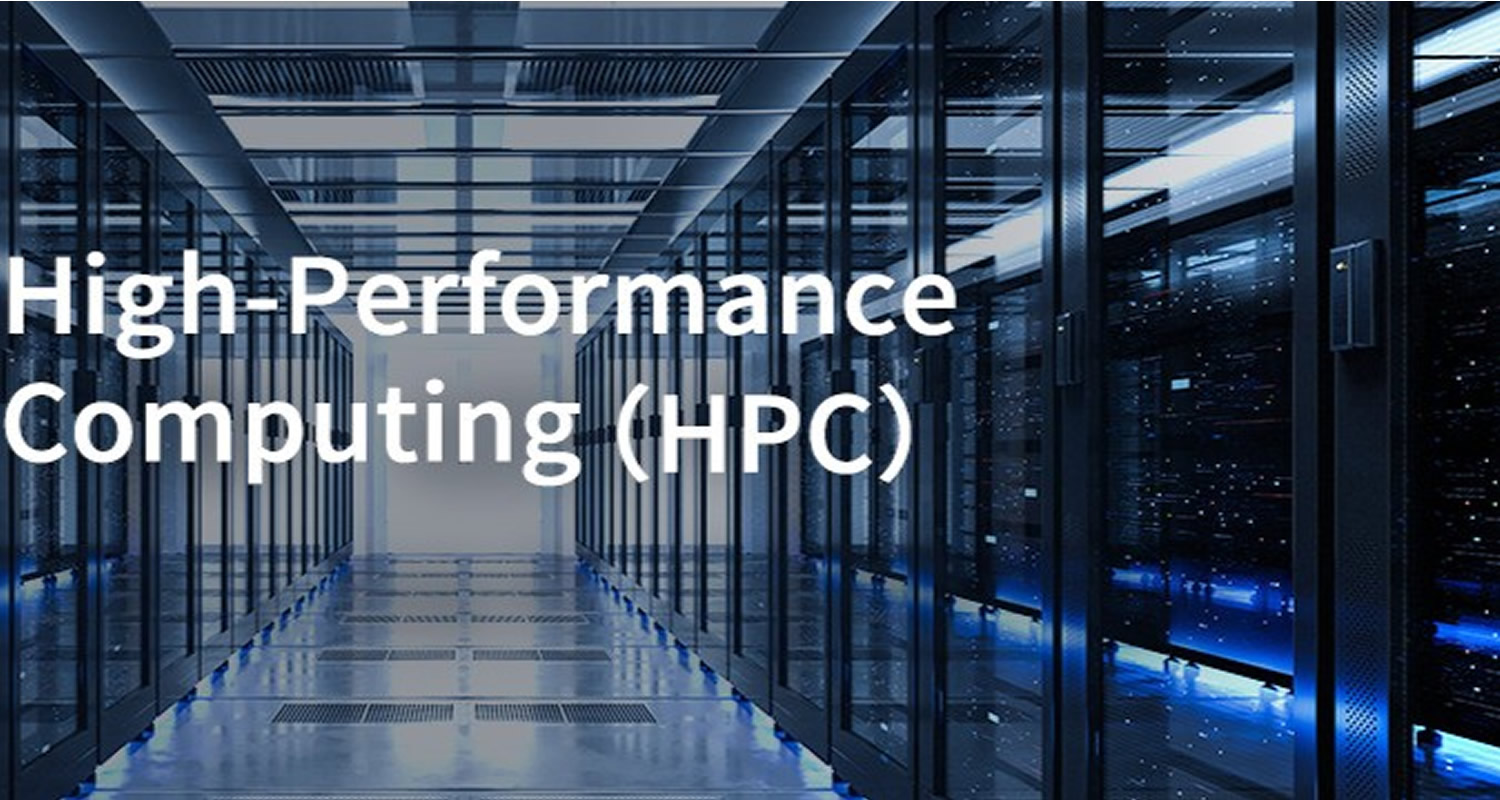HPC VALUE CHAIN
Super Computer Param Kilimanjaro (HPC) is an innovation accelerator that offers enormous potential for companies of all sizes in different sectors. It can reduce the costs of companies’ R&D processes thanks to simulations and virtual prototyping, thereby providing the ability to stay ahead of the competition and to significantly reduce the time to market. It is thereby particularly useful for performing simulations that require high-resolution and -precision results in order to be able to look into the granularity of large and complex problems with many parameters, to be tuned at the same time. It also offers great value in big data analytics and training of artificial intelligence algorithms with millions of data points. This kind of endeavour would take a very long time or would even not be possible to realize on common laptops or workstations, whereas HPC is able to analyse data with unmatched speed and impressive precision.
The ability to efficiently process huge amounts of data dramatically increases innovative capabilities. It can be applied to develop, redesign and test products in virtual environments, optimize production and delivery processes, store and process large amount of data etc. Since physical proximity plays lesser role in utilization of HPC - HPC can be accessed and operated remotely – it provides excellent opportunity for transnational co-creation and technology transfer without the need for extensive investments
Industrial Sector:
Industry can benefit from HPC in many ways which are closely linked primarily to discovery and innovation. With the help of HPC companies can use advanced modelling, simulation, and data analytics, optimize processes and design, improve quality, predict performance and failure, and accelerate or even eliminate prototyping and testing. Using this cutting edge technology companies can design new products, improve existing products, and to bring products to market more promptly and efficiently.
Application of innovative solutions, simulations or testing approaches and decreased time to market empowers small-to-medium enterprise to benefit from reduced cost by using HPC. By using HPC power companies can benefit from reduced cost, application of innovative solutions, simulations or testing approaches and decreased time to market.
As a pillar of a company's performance, the R&D department must offer innovative products while controlling development costs. To be effective, the R&D strategy has to rely on cutting-edge technologies that are perfectly in line with the latest scientific and technical advances in the field. The digital transformation of R&D departments is therefore a key element in the establishment of a high-performance, forward-looking private innovation ecosystem in Luxembourg.
Health Care Sector:
HPC can play a crucial role in managing large amounts of data, especially when many users are involved; such as in simulation based engineering work, testing prototypes in virtual environment and optimisation of manufacturing process. HPC can support the organisation’s business processes and in this chapter we focus on HPC support inside the intellectual property rights processes as business processes. At the same time HPC can be a field of new discoveries and inventions, thus an area for which intellectual property rights may be applied
Some of the Healthcare Computational Activities involves Bigdata analysis, disease prediction analysis, Health data modeling and simulations, disease surveillance and other many more such as: DNA Sequencing; Drug Discovery; Genetic Analysis; Genomic Analysis; Clinical Trials Simulations; Data Storage & Share; Data Backup Services etc.
Example:
1. Bioinformatics. In order to understand what we are fighting we must first be able to sequence the virus’ genome. This is actually very simple to so since the field of genomics has been in place for nearly 15 years. Using HPC platforms and bioinformatics tools, research organizations have begun extensive sequencing of COVID-19. Being able to accurately identify the viral genome enables researchers to understand how it has become so successful in attacking us and spreading across the globe. Understanding the virus itself is imperative to discovering how to defeat it. Scientist can see where the virus bonds to the host cells and replicates. If we are able to disrupt the bonding and replication then we have a fighting chance to defeat COVID-19.
2. In Computational Chemistry; Organizations working on drug treatment are likely utilizing computational chemistry — a branch of chemistry that uses computer simulations to solve chemical problems. With this type of work, organizations can test the effects of specific drug or drug combinations on the virus in an effort to identify which drugs render the virus useless or ineffective. If the virus is prevented from attaching to a host or from replicating, researchers would catapult closer to an effective vaccine.
University and Research Institutions:
HPC allows researchers to study and understand complex phenomena and at the same time is decision makers in their excellence HPC has a fundamental role in driving innovation leading to societal impact through better solutions for societal challenges and increased industrial competitiveness To fill this gap, the Ministry of Economy, the National Research Fund (FNR) and Luxinnovation are launching a joint call for proposals aimed at encouraging close and interactive collaborations between private companies and public research institutes to carry out innovative research projects on HPC infrastructures. It is a strategic priority of the FNR to turn public research into a competitive advantage for Luxembourg and to open up the opportunities for researchers to sustain a high-impact research strategy while engaging with the most innovative private players. To this end, the FNR supports the advancement of Luxembourg's knowledge-based economy by supporting applied research, by reinforcing cooperation between public research and innovative economy, and by facilitating the potential commercial exploitation of research results. Research Data Analysis (Computational Facilities for Bioinformatics, Quantum Chemistry Analysis, Weather and Climate Predictions, GIS Research Analysis, Product Design and Modeling)
Big Data Management;
High performance computing is “the practice of aggregating computing power in a way that delivers much higher performance than one could get out of a typical desktop computer or workstation in order to solve large problems in science, engineering, or business. It is also important whenever several users attempt to solve a computational problem simultaneously. We all know that a laptop with 3 GHz processor can perform around 3 billion calculations per second. While that is much faster than any human can achieve, the HPC can perform quadrillion of calculation per second. HPC can help supersede problems that are be caused by immobile data (ibid.): data that is non-accessible, non-linked or without enough processing support to use it immediately inside processes in organisations. HPC can play a crucial role in managing large amounts of data, especially when many users are involved; such as in simulation based engineering work, testing prototypes in virtual environment and optimisation of manufacturing process. HPC can support the organisation’s business processes and in this chapter we focus on HPC support inside the intellectual property rights processes as business processes. At the same time HPC can be a field of new discoveries and inventions, thus an area for which intellectual property rights may be applied
Virtual Hosting;
- Hosting Websites and Application Systems
-Infrastructure As a Service (IaS) (Specific Computational Facilities – CPU / Processors, RAM, HDD, GPGPU Graphic Cards Capacities)
-Storage As a Service (SaS) (HDD Volume Capacity, Big Data Transfer, Live Data Streams Transfer – Bank daily transactions)
- Data Backup As a Service (BaS)
3. Energy Sector;
- Seismic Data Analysis
- Data Storage and Backup
- Seismic Data Analysis
- Live Mining Data Simulation
4. Financial Institutions;
- Banks (CRDB, NMB, Standard Chartered, Stanbic Bank etc) (Data analysis – Customers predictions, Credit-Risk Analysis)
- Data Backup and Recovery
- Data Storage













